Want a Restful Sleep? Eat These Foods
About two years ago, I stopped sleeping. Since then, I can count on one hand the number of nights I’ve been able to both fall asleep at a reasonable hour and stay asleep through the night. I’ve tried everything: aromatherapy, cutting out caffeine and alcohol, even sleeping pills. But the only thing I’ve really found to work is modifying my diet to include foods that promote restful sleep and exclude insomnia triggers. Though what you eat for breakfast may not seem like an obvious culprit when you’re trying to determine the causes of sleeplessness, the amount and quality of our nightly rest are directly related to the foods we eat all day.
The Food-Sleep Connection
What does diet have to do with sleep? Quite a lot, actually. There are two chemicals in the brain that signal to our bodies when it’s time to go to sleep: seratonin and melatonin. The former shuts down the nervous system so our brains can rest, while the latter regulates circadian rhythms and causes drowsiness. Tryptophan, an amino acid, is the raw material the body uses to produce these two sleep hormones. And as with all proteins, the best source of tryptophan is food. For your daily dose of “vitamin T,” munch on dairy and soy products, lean meats, seafood, whole grains, legumes, eggs, and seeds.
There’s a bit more to inducing sleep with food than just eating a tryptophan-rich diet, though. You also have to make sure the amino acid is available to the brain. High-glycemic foods, carbohydrates that break down quickly during digestion, have gotten a bad rap from diet gurus, but they serve an important purpose in promoting restful sleep. High-carb meals stimulate the production of insulin, which helps rid the blood of amino acids that compete with tryptophan and prevent it from reaching the brain. Calcium also helps the brain turn tryptophan into melatonin. Conversely, eating too much protein at meals, especially in the evening, causes us to ingest too many other amino acids, such as tyrosine, which keeps us alert.
Don’t Dine After Nine
A good rule of thumb to follow when eating for sleep is protein in the morning, carbs at night. But that doesn’t mean you should go overboard on the pasta around 10 p.m. Eating a large meal too close to bedtime, especially one with a high fat content, will have your digestive system working overtime and keep you from falling asleep. Also, eating a purely carbohydrate meal late at night will launch you on the blood-sugar roller coaster and cause your body to release stress hormones that will keep you awake. When you eat is just as important as, if not more important than, what you eat, so heed the old adage “don’t dine after nine.”
A good diet that gets you to sleep at a reasonable hour and helps you stay asleep through the night requires you to carefully distribute your carbs and protein throughout the day. This may seem like a lot to keep track of at first, but you’ll get the hang of it after a while, and the reward will be restful sleep. An added bonus: the same eating plan is recommended to boost metabolism and aid weight loss.
- For breakfast and lunch, choose high-protein, medium-carbohydrate meals. These should constitute the bulk of your daily calories, since you’ll want to eat lightly later in the day. Since most of us are most active in the morning and early afternoon, that’s when we need our fuel.
- Dinner and bedtime snacks should be just the opposite: high in carbohydrates with a small amount of protein. Choose complex carbohydrates to keep your blood sugar level stable and tryptophan-rich sources of protein to balance your amino acids. Try to include some calcium, too, like the old standby of a warm glass of milk.
- Eat your evening meal early, with a light snack about an hour before bedtime (the amount of time it takes tryptophan to reach the brain). This combination will stave off hunger pangs that might wake you in the middle of the night, while ensuring that your body has completed all its major digestive work and is ready for sleep. Great snack choices include whole-grain cereal with skim milk, an apple with string cheese, or a slice of whole-wheat toast with almond butter.
- Avoid foods that cause discomfort. Many people are prone to acid reflux, and the pain of heartburn keeps them awake after eating certain meals, like highly spiced dishes. If this is you, nix that bean enchilada. For others, food can trigger headaches. And there are conditions that may be causing you mild discomfort without your fully realizing the connection, like allergies with gastrointestinal symptoms. Pay attention to what you eat and how it makes you feel, and plan your diet accordingly. You may want to try an elimination diet, cutting out common irritants like wheat and processed sugar for a week at a time, to see if there’s any consequent change in your sleep.
- Consider your coffee intake. Caffeine is a strong stimulant with a long half-life. The amount of time it takes for the body to fully excrete a cup of joe varies wildly among different people, based on age, medications, liver function, and pregnancy. Most health advisors will tell you to stop drinking coffee after noon to keep it from disturbing your sleep, but I’ve found that I need to cut out caffeine completely to get my shut-eye, and I’m not alone. Remember that there are other sources of caffeine besides coffee, too. That after-dinner piece of dark chocolate may be delicious and satisfying, but it may also leave you wide awake at 3 a.m.
- If you booze, you won’t snooze. Alcohol is a depressant that relaxes you, so it must aid sleep, right? Wrong. Though it does induce drowsiness, alcohol prevents you from entering the deep stages of sleep. This reduces the overall quality of your rest and often causes you to wake in the middle of the night. So ditch the nightcap and opt for that glass of milk instead.
- Don’t drink too much liquid too late, unless, of course, you want to make five trips to the potty in the course of the night. Water also wakes you up, so drink the bulk of your eight to ten glasses earlier in the day and shut off the faucet after 9 p.m.
The Beauty of Restful Sleep
I know, I know?these are a lot of rules to follow. But they’re tried-and-true methods for knocking out insomnia. You might not see immediate effects, but after a few days of following this sleep diet, you’ll see the benefits of truly restful sleep: more energy, higher metabolism, better skin and nails, and uplifted mood. Of course, if you find yourself lying awake night after night, you should check with your doctor to rule out any serious underlying problems. But for most of us facing sleeplessness, the best weapon against insomnia is a fork.







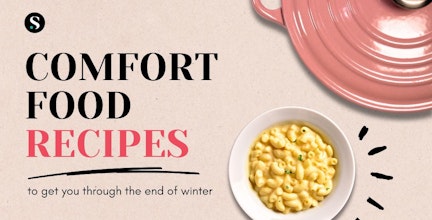
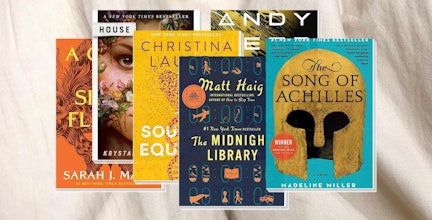


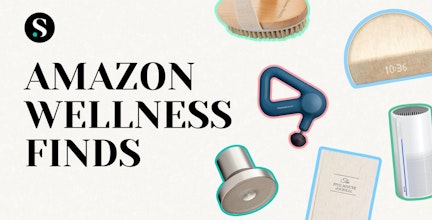
_01252024061712.jpg?max-w=432&max-h=220&fit=crop&auto=format)

_10242023164832.jpg?max-w=432&max-h=220&fit=crop&auto=format)


_08172023152001.jpg?max-w=432&max-h=220&fit=crop&auto=format)
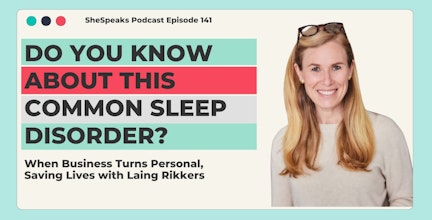
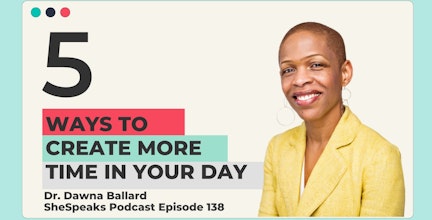
 (6)_07082023175312.jpg?max-w=432&max-h=220&fit=crop&auto=format)
 (1)_05192023144508.jpg?max-w=432&max-h=220&fit=crop&auto=format)

 (37)_05032023114523.jpg?max-w=432&max-h=220&fit=crop&auto=format)